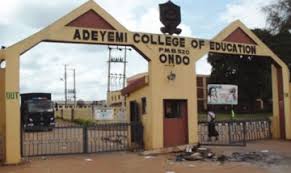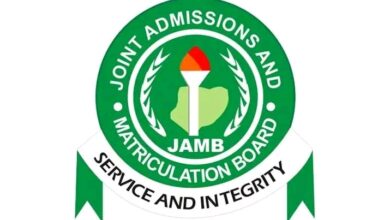Top 10 Colleges of Education in Nigeria for Hausa and Economics Studies

Nigeria, a nation with a rich cultural heritage and a growing economy, provides an excellent backdrop for students aspiring to study Hausa language and Economics.
Choosing the right College of Education (COE) is crucial for a comprehensive education that not only enhances linguistic and analytical skills but also fosters an understanding of economic principles.
In this article, we will explore the top 10 Colleges of Education in Nigeria, renowned for their exceptional programs in Hausa and Economics Studies.
Each of these institutions is dedicated to providing students with a transformative learning experience, equipping them with the knowledge and skills needed to navigate the complexities of Hausa language and economics.
1. Federal College of Education, Zaria
Federal College of Education, Zaria, stands tall as a pioneer in Hausa and Economics education. With a robust curriculum and esteemed faculty, the institution fosters a learning environment that promotes linguistic fluency in Hausa and a deep understanding of economic theories and applications.
2. Adeyemi College of Education, Ondo
Adeyemi College of Education, Ondo, is renowned for its specialized programs in Hausa and Economics Studies. The college’s immersive language courses and economics workshops provide students with a profound understanding of Hausa culture and economic principles. The institution’s commitment to practical learning ensures students graduate with a well-rounded education.
3. Alvan Ikoku College of Education, Owerri
Alvan Ikoku College of Education in Owerri offers dynamic courses in Hausa and Economics Studies. The institution’s vibrant language labs and interactive economics classes create an enriching learning environment, enabling students to explore the nuances of Hausa language and delve deep into economic theories and policies.
4. Federal College of Education, Kano
Federal College of Education, Kano, excels in Hausa and Economics education, offering comprehensive programs that cover both disciplines extensively. The institution’s multicultural approach promotes linguistic proficiency and economic literacy, making it an ideal destination for students passionate about these fields.
5. College of Education, Ikere-Ekiti
College of Education, Ikere-Ekiti, provides a holistic approach to Hausa and Economics Studies. The institution’s language immersion programs and economics projects create a conducive environment for students to grasp the essence of the Hausa language and delve into the intricacies of economic concepts and policies.
6. Federal College of Education (Technical), Gusau
Specializing in technical education, this institution offers specialized courses in Economics, focusing on both theoretical knowledge and practical application. Students engage in real-world economic projects and research, enhancing their understanding of economic dynamics in Nigeria.
7. Kwara State College of Education, Ilorin
Kwara State College of Education, Ilorin, offers comprehensive programs in Hausa and Economics Studies. The institution’s dedicated faculty and well-equipped classrooms create an enriching learning environment, enabling students to excel in both fields and make meaningful contributions to society.
8. Federal College of Education (Technical), Asaba
This institution excels in Economics education, offering programs that blend theoretical knowledge with practical applications. Students benefit from hands-on economic projects and simulations, enhancing their economic analysis skills and understanding of market trends.
9. Shehu Shagari College of Education, Sokoto
Shehu Shagari College of Education offers specialized courses in Hausa and Economics Studies. The institution’s focus on linguistic proficiency and economic principles equips students with the skills needed to excel in both disciplines. Students have access to extensive language resources and economic research materials.
10. Federal College of Education (Special), Oyo
Specializing in special education, this institution offers tailored programs in Hausa and Economics Studies. The college’s inclusive approach and experienced faculty create an enriching learning environment for aspiring educators and economists, emphasizing both cultural sensitivity and economic expertise.
FAQs
What is the number one college of education in Nigeria?
Determining the number one College of Education in Nigeria can be subjective and dependent on various factors such as academic performance, faculty expertise, and facilities. However, Federal College of Education, Zaria, is widely recognized for its excellence in education and is often considered one of the top institutions in the country.
Where is the best college of education in Nigeria?
The best College of Education in Nigeria can vary based on individual preferences and academic interests. However, Federal College of Education, Zaria, Federal College of Education, Kano, and Adeyemi College of Education, Ondo, are among the institutions often regarded as some of the best due to their high-quality education and reputable faculty.
How many colleges of education are in Nigeria?
There are numerous Colleges of Education in Nigeria, offering a wide range of programs and specializations. The exact number may change over time due to new institutions being established. As of the current data, there are several dozen Colleges of Education spread across the country.
What is the meaning of College of Education in Nigeria?
In Nigeria, a College of Education is an institution that provides specialized education and training to students aspiring to become educators, teachers, and educational professionals. These institutions offer various programs, including language studies like Hausa and Economics Studies, aiming to prepare students for roles in teaching, educational administration, and economic-related fields.




